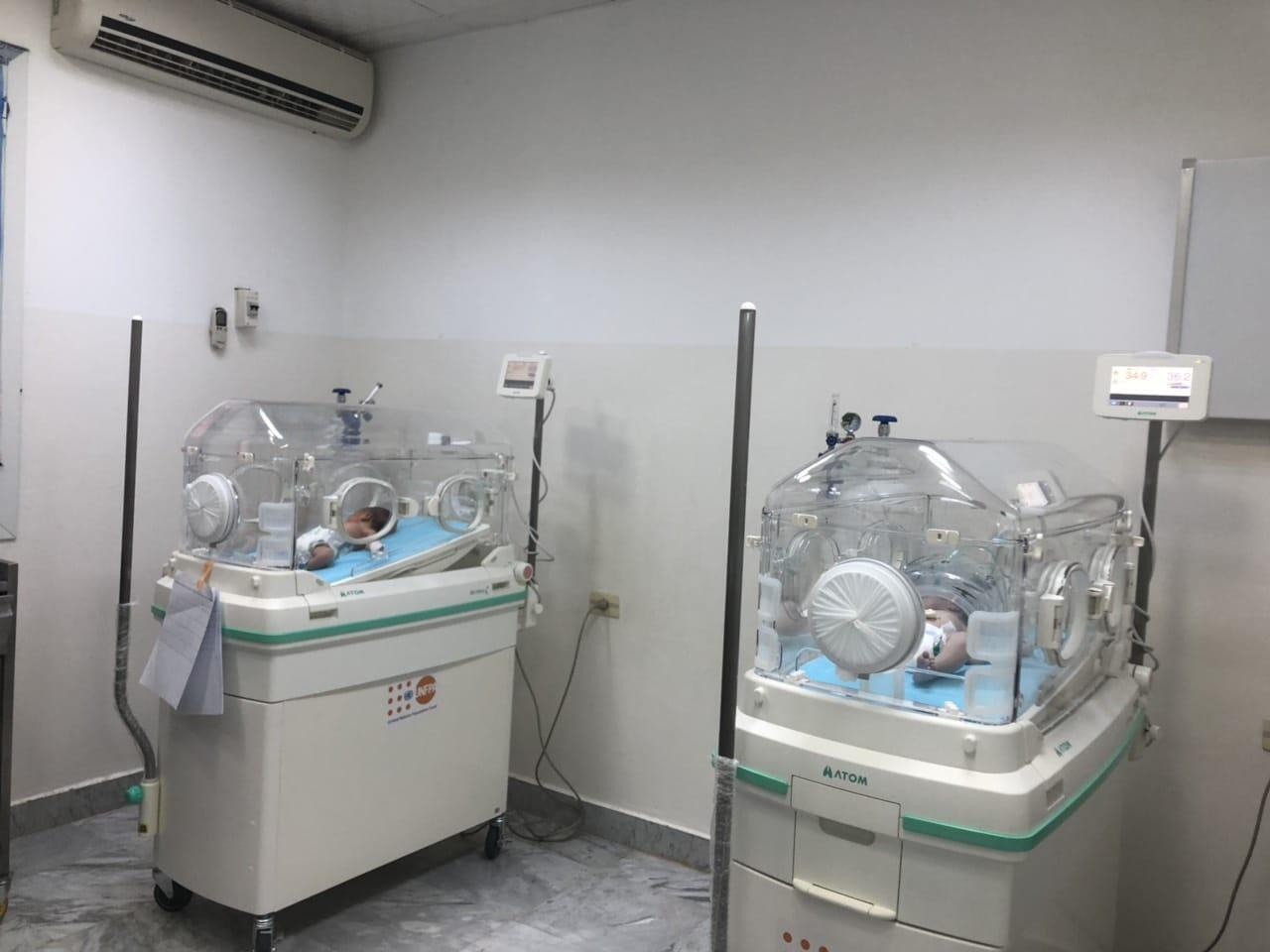Twenty-five years ago, at the International Conference on Population and Development (ICDP) in Cairo, the world leaders adopted a revolutionary Programme of Action and called for all people to have access to comprehensive reproductive health care, including family planning methodologies, safe pregnancy and childbirth services. Today, in Tripoli, conflict and a strained health system put mothers and newborns’ lives at stake. Due to a lack of skilled health workforce, equipment and essential medicines, Sexual and Reproductive Health (SRH) services are facing alarming accessibility, availability and quality issues in Libya.
UNFPA is working to live up to the ICPD promise by supporting the Ministry of Health in providing Sexual and Reproductive Health (SRH) services, with a focus on maternal and newborn health. This is done mainly through deployment of specialized health staff and provision of emergency reproductive health kits containing lifesaving medical supplies and medicines.
On 16 June 2019, jointly with Tripoli Health Services Department and Tripoli Crisis Management Team and thanks to funding from Canada and CERF, UNFPA inaugurated a newly rehabilitated and equipped maternity ward in Weryemma polyclinic in Eastern Tripoli, marking a great achievement to contribute to saving the lives of mothers and newborns in Libya during the crisis. Three specialized teams composed of physicians, nurses and midwives have been deployed to the Polyclinic on a 24/7 basis through a local partner. The medical equipment provided to the facility helped the medical teams perform safe deliveries and take care of ill newborns.
On 15 July Fatima*, a 36 year-old Tripoli resident and a mother of two, was rushed to Weryemma polyclinic minutes before delivering her third baby. Early that day, when she went into labor, Fatima and her husband decided to drive to Al Jalaa hospital in the center of Tripoli to deliver the newborn, but hospital staff couldn’t admit her for lack of delivery beds. The couple then drove to Alkhadra hospital and Tajoura hospital, where their admission was rejected for the same reasons. Since April 2019, Tripoli conflict has led to the closure and destruction of several health facilities and massive displacement of population to central Tripoli. The capacities of the few still-working health facilities is overstretched.
“It was getting dark, my wife was in labor pain for hours and I didn’t know what to do, I started to panic but a lady at Tajoura hospital advised that we go to Weryemma polyclinic, she heard that it reopened recently and that it is not located far from Tajoura hospital” - the husband said. Fatma arrived to Weryemma polyclinic and was immediately examined by a doctor. She was due to deliver the very minute she arrived ‘’I was screaming of pain with a fear that I was going to deliver in the car. I couldn't believe we had to drive all over Tripoli for hours trying to find a hospital to deliver my baby. I felt completely helpless’’ Fatima said.
At 9:38 pm, Fatima delivered a healthy baby boy, the first newborn at Weryemma polyclinic.
Since July 2019, the specialized medical teams deployed at Weryemma Polyclinic provided medical assistance to 3,484 women, children and men, ensured the safe delivery of 25 newborns and admitted 17 newborns to the Neonatal Intensive Care Unit (NICU).
The 2019 Health Sector Joint Assessment[1] highlighted that more than 24% of health facilities in Libya are closed because of conflict, electricity cut or structural damage and services are interrupted in other health facilities. Antenatal care is not available in 70% of Primary Health Care (PHC) health facilities, delivery services are not available in 49% of health facilities and 33% of Primary Health Care facilities report zero availability of essential medicines.
The Weryemma Polyclinic is the first Primary Healthcare Center providing Emergency Obstetric and Newborn Care (EmONC) in Tripoli, where women can deliver safely and receive advanced medical assistance for themselves and their babies.
*name was changed for privacy reasons
1 Conducted jointly by Health Sector partners in October 2019.


